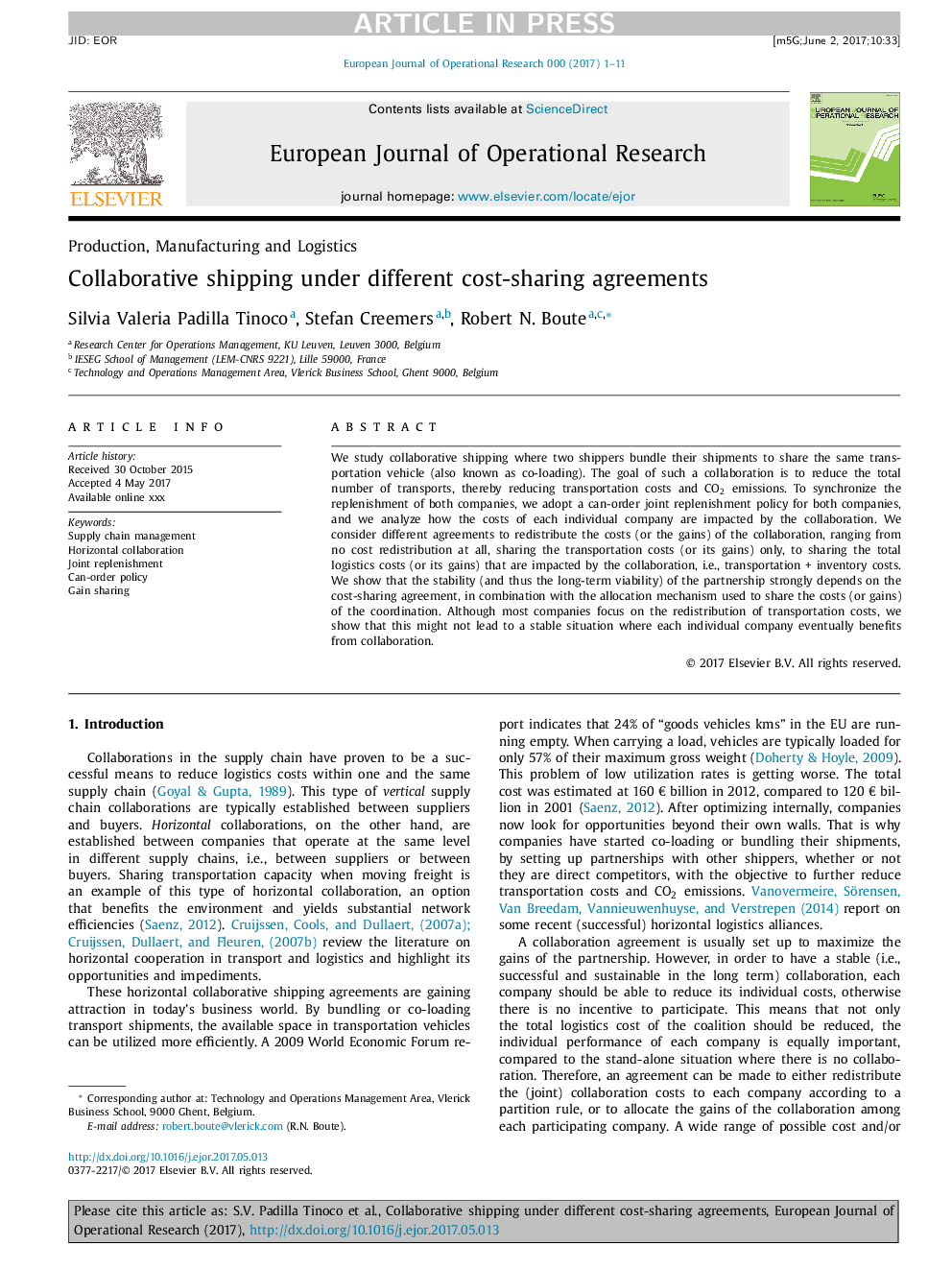| Article ID | Journal | Published Year | Pages | File Type |
|---|---|---|---|---|
| 4959343 | European Journal of Operational Research | 2017 | 11 Pages |
Abstract
We study collaborative shipping where two shippers bundle their shipments to share the same transportation vehicle (also known as co-loading). The goal of such a collaboration is to reduce the total number of transports, thereby reducing transportation costs and CO2 emissions. To synchronize the replenishment of both companies, we adopt a can-order joint replenishment policy for both companies, and we analyze how the costs of each individual company are impacted by the collaboration. We consider different agreements to redistribute the costs (or the gains) of the collaboration, ranging from no cost redistribution at all, sharing the transportation costs (or its gains) only, to sharing the total logistics costs (or its gains) that are impacted by the collaboration, i.e., transportation + inventory costs. We show that the stability (and thus the long-term viability) of the partnership strongly depends on the cost-sharing agreement, in combination with the allocation mechanism used to share the costs (or gains) of the coordination. Although most companies focus on the redistribution of transportation costs, we show that this might not lead to a stable situation where each individual company eventually benefits from collaboration.
Related Topics
Physical Sciences and Engineering
Computer Science
Computer Science (General)
Authors
Silvia Valeria Padilla Tinoco, Stefan Creemers, Robert N. Boute,
